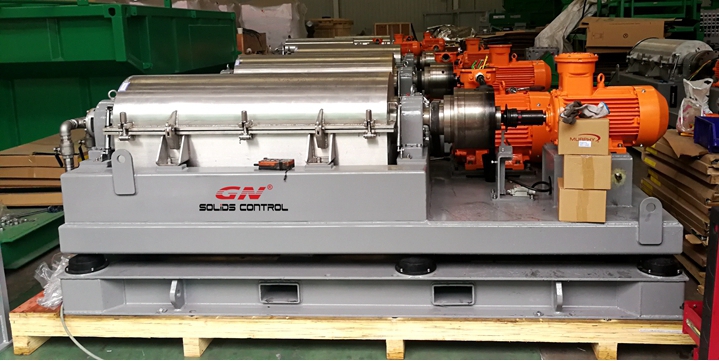There are many types of decanter centrifuges, and each type has different characteristics and scope of application. Therefore, it is a very important issue to properly select the appropriate decanter centrifuge according to certain process requirements and technical conditions. The selection of decanter centrifuge is mainly considered from two aspects. The first is the nature, composition of the separated materials, and the second is the technological requirements and economic rationality of the separation process:

I. Consider from the nature and composition of materials
The primary basis for selection is the type of heterogeneous system that is separated. For example, for the separation of emulsions in a liquid-liquid system, the first consideration is to use a centrifugal separator. For liquid-solid systems, when the liquid phase of the suspension is a loose material with a low degree of solidity, large solid phase concentration, and coarse particle size (> 100um), various filter decanter centrifuges can be considered. Generally speaking, this kind of decanter centrifuge can get drier filter residue and better washing conditions. Secondly, it is necessary to further select the appropriate form for specific conditions.
If the suspension is a material with a large liquid phase viscosity and a fine solid particle size, it is easy to block the filter cloth or screen, but it is difficult to regenerate. Therefore, a centrifugal sedimentation decanter centrifuge should be used. When the solid phase concentration is large (5% to 10%), a spiral discharge sedimentation decanter centrifuge can be used. If the solid phase concentration is less than 1%, a tubular high-speed decanter centrifuge or a chamber decanter centrifuge can be used. If the solid phase concentration is 1% — 5%, a disc decanter centrifuge can be used. The automatic slag-discharging dish decanter centrifuge can obtain flowing concentrated sediment, so it is often used for solid-phase concentration. For liquid-liquid-solid three-phase systems, generally the solid content is not high, you can use a dish decanter centrifuge.
2, from the technical requirements of the separation process
The process requirements of the separation process directly affect the selection of the decanter centrifuge. For example, the separation process requires intermittent or continuous operation. The minimum particle size of the separation, the liquid content of the filter residue, the clarity of the filtrate, the discharge method, whether the solid particles are allowed to be destroyed, and washed Requirements, the length of the operating cycle and whether automatic control is required, the degree of automatic control, etc.
In addition, there are still requirements for sealing, anti-corrosion and explosion-proof.
In short, it is necessary to choose a decanter centrifuge that is inexpensive, applicable (that is, in line with process requirements), simple to manufacture, and easy to maintain. Choose according to the main contradictions that need to be resolved and make economic comparisons. Both technical possibilities and economic rationality must be considered. Of course, according to human operation, there are also manual operation and automatic operation. Users can choose according to their needs.